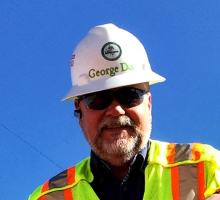Articles by George Dugan
Choose Bentonite or Synthetic Slurry as the Job Demands
Synthetic Polymers Still Relatively New to Drilled Shafts, Foundations
Dig deeper into the drilling and water supply industry!
Build your knowledge with The Driller, covering the people, equipment and technologies across drilling markets.
SIGN UP NOWCopyright ©2025. All Rights Reserved BNP Media.
Design, CMS, Hosting & Web Development :: ePublishing

